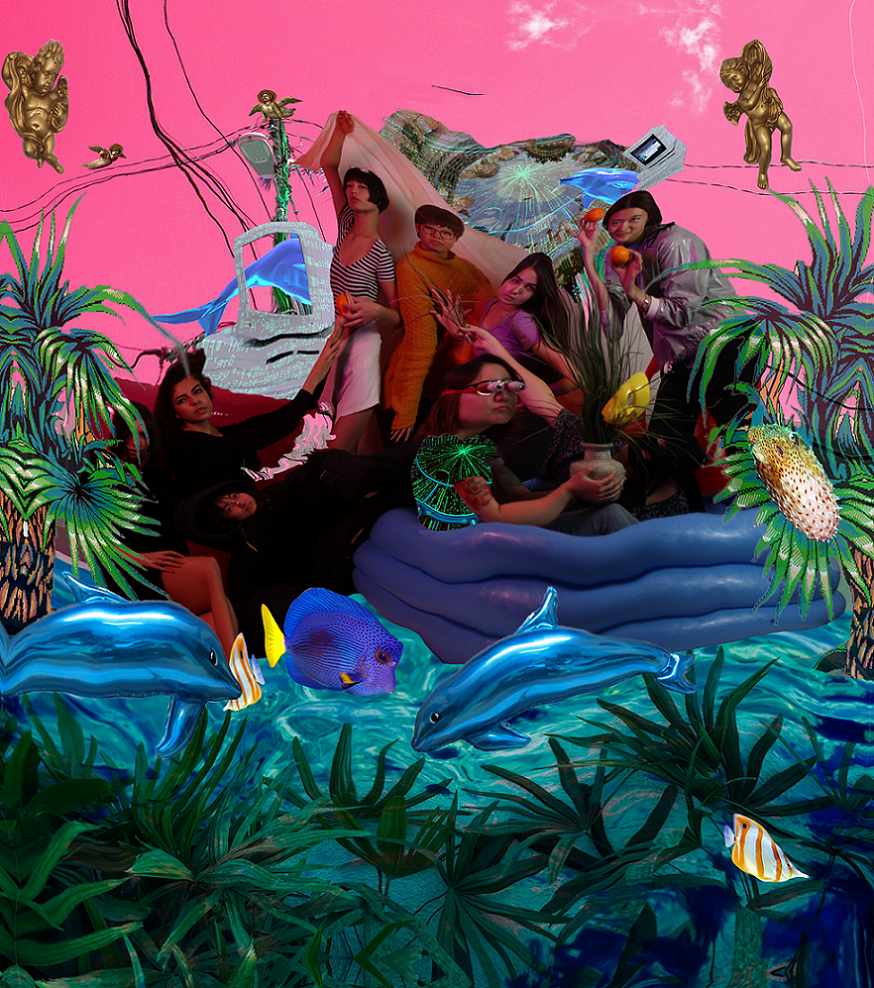voidLab: A Feminist Space for Art, Technology, and Critical Conversations

Image: voidLab members, by Hillary Cleary.
The tech industry has a well-documented problem with diversity. Seventy percent of the employees at Apple, Twitter, Youtube, and Google are men. The list of companies with similarly staggering statistics goes on and on. This means that men’s voices, particularly white men’s voices, are especially dominant in tech.
At UCLA, a group of feminists called voidLab are working to shift that.
Hsinyu Lin, a graduate student at UCLA, started what would become voidLab with her colleague Sanglim Han in February 2015, after feeling out of place as a woman of color in her Design Media Arts master’s program.
“I found myself surrounded by a whole class of heteronormal, neurotypical, white men,” Lin said.
Lin went on to say that the experience made her realize she needed to figure out what it meant to her to be a Taiwanese/American woman working in a white and male-dominated industry. voidLab started as a way to support people who felt similarly marginalized in tech and wanted to explore their identities.
One of the people who connects to this vision is Amanda Stojanov. Stojanov is also a Design Media Arts graduate student and voidLab member.
“Many times [non-male people] are still tokenized and therefore objectified [in the technology industry],” said Stojanov. “In that system, their potential is seriously discouraged.”
Stojanov said that because women are a clear minority in most of the tech industry, they are rarely thought about. When they are considered, it is in a simplified, abstract way. To combat this, Stojanov saw voidLab as a way for women to create together and form their own discourse on tech.
I also related to Lin’s vision for voidLab, and joined the group in February of 2015. Lin, who was then my teaching assistant, made an announcement in my class that she was starting a feminist coding lab, and I was sold.
I had heard rumblings about feminist tech organizations like Deep Lab before. Since the internet is an inescapable part of our daily lives, I wanted to figure out how I could be a more responsible and engaged internet citizen. I also wanted to use the three years of critical gender theory I had learned in my gender studies classes to become that netizen.
When I first joined, we didn’t have a name, we didn’t really have a structure, and we didn’t know what we could or should do. However, I felt that we all had a sense that the work we were coming together to do was extremely important.
After months of discussion, today voidLab’s mission statement says that we are a “feminist organization for women, non-binary, gender nonconforming, trans and queer folks to express identities and social criticism through art and technology.”
In line with this mission, we have already accomplished a lot in our short existence. We have helped elementary school students at the UCLA Lab School learn about sound using littleBits (small and magnetic electronic blocks). Over the summer, voidLab members built a colorful, fuzzy, guitar-like instrument called the Clitar, as a way of exploring femininity and game interfaces, and presented it at IndieCade, the international festival of independent games. In November, I helped lead a discussion of gender’s complexity for voidLab members. In December, we hosted an art exhibition called Deep Web Roach Queen, displaying work by our members. We have our own website, Instagram, and Twitter.
Echo Theohar, a fourth-year Design Media Arts student at UCLA, said she was drawn to voidLab through this commitment to discussion and tangible action.
“voidLab had the vision to make things happen. Especially for an all-women’s thing, I think that is really important and valuable,” Theohar said. “I like that we take initiative and do things for ourselves.”
Theohar said she sees voidLab as a kind of workshop, or in her words, a “social-arts practice thing.”
I think of us as a group of really cool people who care about feminism, who want to support each other, and use art and technology to think about the world in a more creative way.
I think the work we do is not only fun and interesting, but necessary. New technologies present opportunities, but also possible pitfalls. voidLab is the place we can have critical conversations and do real work to address those contradictions.




